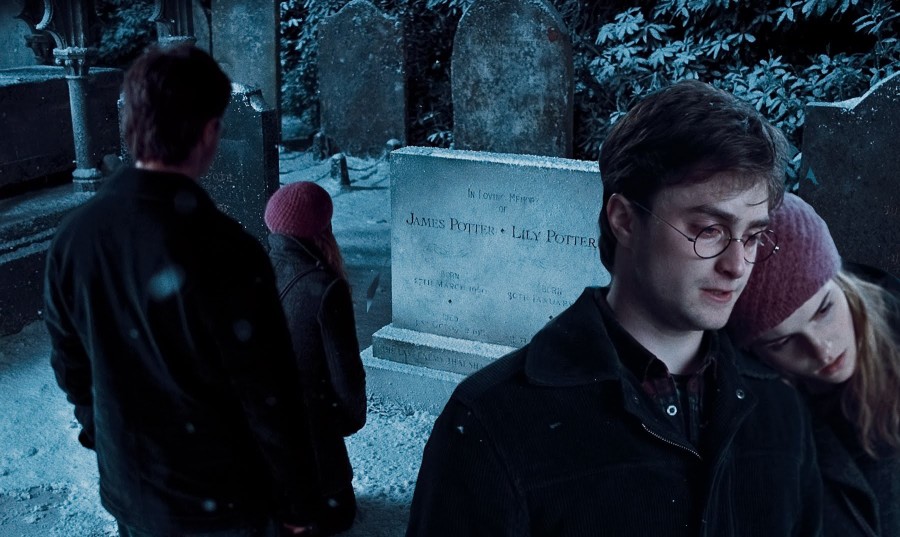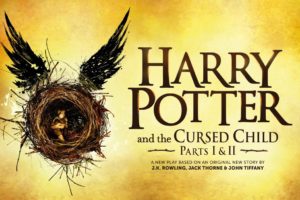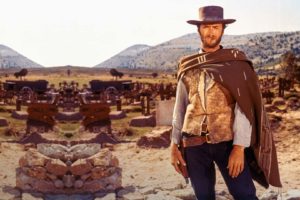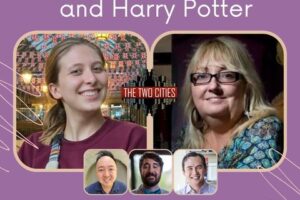At long last the edited volume from the Harry Potter conference held at the University of St Andrews in 2012 is now in print and you can get your copy of Ravenclaw Reader here!
The conference was a complete success, being one of the most enjoyable and stimulating academic settings I’ve ever been in. It was the first ever academic conference on Harry Potter held in the UK and I was so thrilled to be able to present a paper at the conference. And now I am pleased to have my paper included in the proceedings volume. My paper, “The Death of Death in the Death of the Boy Who Lived: The Morality of Mortality in Harry Potter,” is a study on the representation of death in the series in the light of the enigmatic citation of 1 Cor. 15.26 on the Godric’s Hollow tombstone of James and Lilly Potter in the Deathly Hallows: “the last enemy that shall be destroyed is death.”
The volume includes ten of the fifty essays presented at the conference and each essay has a corresponding response essay. I am unbelievably pleased to say that the response to my essay was written by none other than Mr. Hogwarts Professor himself, the “Dean of Harry Potter Scholars,” and the author of several fabulous books on the series, including How Harry Cast His Spell, Harry Potter’s Bookshelf, and Looking for God in Harry Potter—John Granger! I have not yet read his response and so I do not know if he takes a favorable posture towards my essay. But regardless, to receive serious engagement from John Granger is a true honor. His response is entitled, “Deaths that Destroy Death.”
My two favorite essays from the conference, the ones that I talk about the most, were included in this volume: Joshua Richards’ argument that Snape corresponds to Joseph Campbell’s pattern of paternal atonement and Joel Hunter’s essay on the aesthetic satisfaction of the Harry Potter stories in relation to Vladimir Propp’s criteria for Folktales.
The book has already received some great reviews. Note these ones below:
Ravenclaw Reader is a compilation of some of the papers presented at the St. Andrews Conference on the literary elements, qualities, implications, and nuances of Rowling’s books. Here is the future of Rowling studies. Rowling’s work will endure and continue to elicit scholarly attention because her books are too rich, too deep, too personally meaningful to be forgotten or neglected by those who love books. —James Thomas (Professor of English, Pepperdine University)
Arranged as a series of essays and responses, this compelling anthology allows fans to be part of a dynamic dialog on the Harry Potter books’ core themes (death, education, the workings of magic), rich literary intersections (the forest archetype, folk tradition, utopia and dystopia), and most perplexing conundrums (understanding challenging characters like Snape, Neville, and the Dursleys). Ravenclaw Reader is an essential addition to every Potter fan’s bookshelf. —Kathryn McDaniel (McCoy Associate Professor of History, Marietta College)
Although Harry’s adventures may have come to an end, Ravenclaw Reader makes clear that adventures in scholarly analysis of his story have not. Its pages filled with insight, informative contextualization, and illuminating controversy, the book offers both scholars and fervent lay readers of the series much to consider. A great addition to anyone’s already packed shelf of Harry Potter studies. —Edmund M. Kern (Associate Professor of History, Lawrence University)
If there had been any question as to the academic legitimacy of J.K. Rowling studies, Ravenclaw Reader has put the issue to rest, and with emphasis… This collection of essays brings our beloved Harry Potter novels under the piercing and revelatory gaze of profound academic rigor and insight. For those who have always known there was far more to Rowling’s epic work than is commonly acknowledged, you will find solace, clear-sightedness and companionship in the pages of this collection. —Patrick McCauley (Assistant Professor of Religious Studies, Chestnut Hill College)
And the book was even featured on MuggleNet Academia (see here). They did a podcast with John Granger, the editors, and another contributor about the conference and the volume that you can listen to. Here’s what the managing editor of MuggleNet (dubbed the #1 Harry Potter website) had to say about the book:
Ravenclaw Reader is serious reading for the Sirius Pottered. Never in the history of Potter Punditry has there been such an intense discussion and dissertation on the meaning and depth of the Hogwarts Saga. The broad range of subjects presented in the Ravenclaw Reader will interest any fan of the Harry Potter series. It will take their appreciation of the text of J.K. Rowling’s magical world even deeper. A MUST READ! —Keith Hawk (MuggleNet Managing Editor)
I’m very excited that the buzz has been so positive and I’m thrilled that I was able to contribute to the study of Harry Potter in this way. You guys should seriously check out this book!





Leave a Reply
Your email is safe with us.